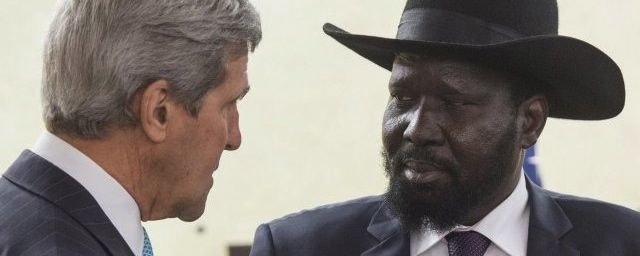Senior US official endorses law group’s recommendation

The US State Department yesterday published a statement by a senior official apparently endorsing a recommendation made by the American Bar Association Rule of Law Initiative on investigating atrocities committed in South Sudan.
Investigators should “systematically collect and preserve evidence of atrocity crimes,” reads the statement published by the State Department.
The statement was made in the name of Steven Feldstein, Deputy Assistant Secretary of State in the US State Department, which is the US equivalent of the foreign ministry.
Feldstein is responsible for the Department’s support to human rights in Africa. He previously served as counsel to Senator John Kerry and Senator Joe Biden on the US Senate Foreign Relations Committee.
He stated, “Too much blood has been spilt and too many violent crimes have been committed for South Sudan to move forward without undertaking a thorough examination of all alleged atrocities committed by both government and opposition forces.”
“While some people would be satisfied with reconciliation and truth telling, others long to see at least some offenders held responsible through formal criminal proceedings,” he added.
Feldstein referred to a newly released report by the American Bar Association’s Rule of Law Initiative. He quoted the report directly, saying, “South Sudan’s legal system lacks the capacity to undertake credible investigations and prosecute the kinds of serious crimes that have occurred during the conflict.”
‘Collecting evidence of atrocity crimes’
In its report, the American Bar Association recommends that teams of international investigators undertake criminal and forensic investigations in South Sudan, under protection of a private security company, peacekeeping force, or other security contingent.
The law group also advised that the UN Security Council could pass a Chapter VII resolution to compel South Sudan to cooperate with the investigative body.
Following the release of this report, Feldstein yesterday endorsed the idea of collecting evidence on atrocities committed in South Sudan.
He wrote: “One important area where the international community can have an immediate impact is to support efforts to systematically collect and preserve evidence of atrocity crimes, so that these investigative efforts can ultimately support accountability in the future (for example, through an international hybrid court, as recently suggested by both UN Secretary General Ban Ki-Moon and the African Union Commission of Inquiry).”
US policy stance
Feldstein’s endorsement is not in itself a guarantee that the US will push for an international investigation mechanism. The US National Security Council and US Ambassador at the UN would likely need to be involved before any serious US diplomatic push to set up such an initiative.
Nonetheless, the official’s statement, published under the heading ‘Looking Beyond Kiir and Machar for Solutions in South Sudan,’ indicates a hardening of the US position against both the government and the rebel SPLM-IO.
Feldstein's involvement is also potentially significant because his office at the State Department (the Bureau of Democracy, Human Rights and Labor) led the Darfur Atrocities Documentation Project in 2004, the findings of which were a key factor in the UN Security Council referral of the Darfur situation to the International Criminal Court (ICC) less than a year later.
Feldstein also states, “Too many people have suffered and died for either Kiir or Machar to lay exclusive or legitimate claim to lead South Sudan.”
He proceeds to recommend that “a broader array of voices” participate at the IGAD-mediate peace talks and stresses that a peace agreement should pave the way toward elections and a “new, democratically elected government.”
File photo: US Secretary of State John Kerry with President Salva Kiir
Related:
Law experts says S Sudan government has ‘no will, no capacity’ to investigate atrocities (16 July)
Kiir’s guard commander and rebel general first names on US sanctions list (6 May)